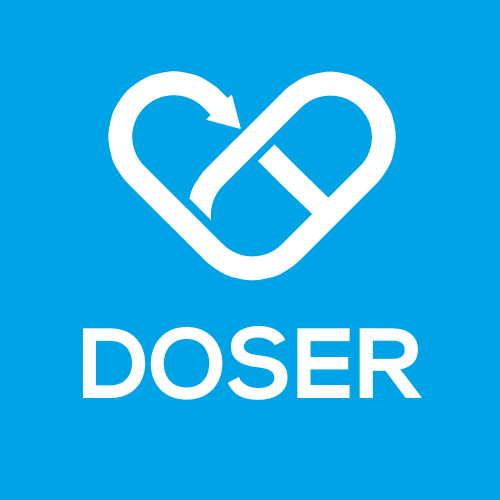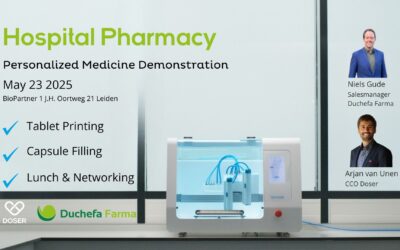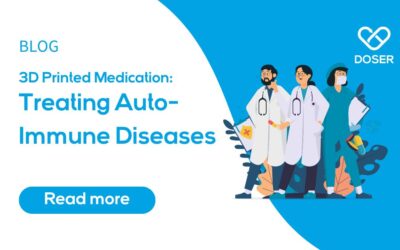Orphan diseases – sometimes referred to as rare diseases – are thought to impact one in 10 people, causing significant challenges for patients due to their diverse and complex nature. With many hurdles in correctly identifying and treating patients, finding effective treatment options is an important concern for both patients and healthcare providers. One of the options showing great potential for orphan disease treatment is precision dosing – the customization of drug treatments for individual patients based on genetic, environmental, and lifestyle factors. But what benefits does precision dosing have, and what can be done to ensure the right treatment options become widely available for patients?
The Challenges in Treating Orphan Diseases
There are many challenges to be aware of when it comes to finding treatment options for orphan diseases. With them being relatively rare, the limited patient populations make it difficult to gather sufficient data for research or clinical trials. As such, treatment options are often limited due to the little information available to inform effective treatment development.
Even in cases where clinical data exists, fully understanding orphan diseases are inherently complex and diverse – made even more challenging due to nonspecific symptoms. Even in cases where a disease can be identified, inadequate healthcare infrastructure and high treatment costs can often restrict the treatment options offered by healthcare providers.
Furthermore, the variability inherent in orphan diseases makes standardizing dosages difficult, especially as patient responses to medications vary greatly depending on genetic variations and specific disease manifestations. As such, conventional approaches with standard medicines aren’t always appropriate, demanding solutions that can be customized, yet still practical for patient care.
The Concept of Precision Dosing
One exciting solution to effectively treat orphan diseases – and offering a viable alternative to traditional drug dosing – comes in the form of precision dosing.
Traditional dosing methods rely on standard doses based on average patient responses – applying a one-size-fits-all strategy that largely ignores the vast inter-individual variability in drug absorption, metabolism, and excretion. In contrast, precision dosing is a tailored approach to medication, aiming to optimize drug dosage efficacy and minimize side effects for each individual patient, based on factors including genetics, age, weight, organ function, and even lifestyle. As such, patients receive the most appropriate dosage for their specific needs and conditions – leading to better treatment outcomes and reduced instances of under or overdosing.
This is important for effective treatment because underdosing could lead to ineffective treatment, whereas overdosing could cause toxic side effects and increase the likelihood of adverse drug reactions. Most importantly, precision dosing can dramatically improve patient outcomes and quality of life. For individuals suffering from rare diseases, personalized treatment plans can lead to more effective management of their conditions, fewer hospital visits, and a better overall daily living experience.
Implementing Precision Dosing for Treatment of Orphan Diseases
Technological advancements have significantly bolstered the potential of precision dosing to optimize medication efficacy and minimize the side effects for individual patients.
Through advancements in genetic testing and biomarkers research, drug therapies can now be tailored to the genetic profiles of individual patients. Genetic testing allows for the identification of variations in genes that affect drug metabolism and response, whilst biomarkers provide insights into the biological impact of a drug and predict patient response to a specific therapy. With advanced testing capabilities, so does the amount of data generated. Integrating data analytics and artificial intelligence (AI) with the proliferation of genetic information and clinical data allows for optimal drug doses to be predicted faster and more accurately. Complemented by machine learning, models can analyze patterns in data to continually refine dosing algorithms based on patient responses accordingly.
The high cost of genetic testing and the sophisticated infrastructure required to analyze and interpret data can limit access to precision medicine. Even if data can be analyzed, specialized training for healthcare professionals to understand the data output to plan treatment is another hurdle that complicates its widespread adoption.
Additional, ethical considerations arise regarding patient privacy and the management of genetic data. Stringent regulatory frameworks must be adhered to to protect sensitive genetic information and prevent its misuse. There is also the challenge of maintaining patient trust to ensure their genetic data will be used and shared appropriately, that doesn’t compromise privacy or ethical boundaries.
Despite these hurdles, the potential of precision dosing to revolutionize treatment paradigms is immense, promising more personalized, effective, and safer medical treatments. The ongoing development and integration of technology in healthcare are crucial for overcoming the current limitations and fully realizing the benefits of precision medicine.
How Doser Is The Future of Precision Dosing in Orphan Disease Treatment
Emerging technologies and collaborative efforts will be the driving force that brings precision dosing to the forefront of treatment options for orphan diseases.
At Doser, we are helping to overcome the challenges outlined in this article, with our DoseRx1 technology. Using quality-controlled and refillable cartridges, we enable 3D printing that can be used to manufacture semi-solid formulations and liquid-based dispensing that is compatible with >80% of oral APIs, to increase the availability of precision-dosed medications.
Our primary goal is to enhance the quality of care that patients receive through advanced technological tools that enable pharmacists to deliver personalized therapy to patients. By helping pharmacists, we also help doctors treat their patients more effectively and with higher success rates.
But to bring our technology to a wider market, we still rely on advances from the wider scientific and healthcare community. The implementation of AI and machine learning will continue to advance our knowledge of orphan diseases, and improve the treatment options that will be available in the future.
Collaborative efforts between researchers, pharmaceutical companies, and healthcare providers are critical to the success of precision dosing. By sharing data and resources, these stakeholders can overcome the barriers of drug development and the need for specialized knowledge to interpret genetic data.
Learn more about how we are working to advance personalized care with our award-winning 3D printing technology.




